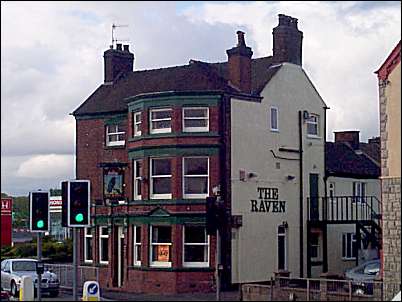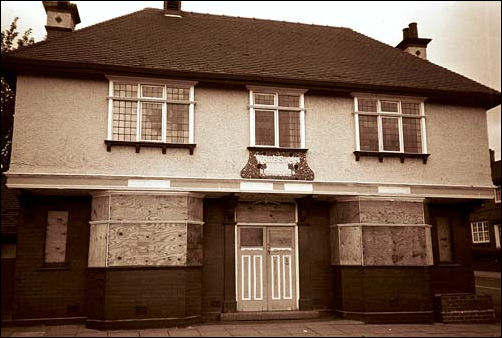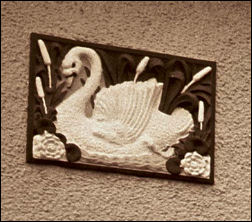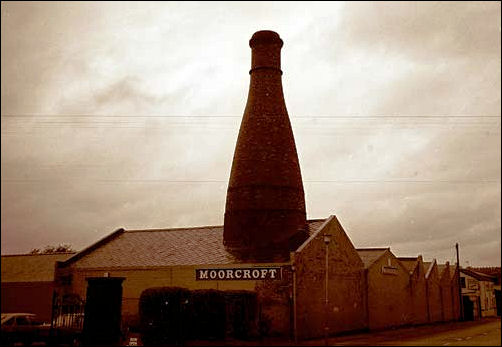|
Elder Road:
In the 1680's there
were only three or four small houses at Cobridge but by the mid
1750's a distinct settlement had come into existence in the vicinity
of the cross roads formed by Sneyd Street, Grange Street and Elder
Road.
The
Raven public house at the junction of Elder Road and Sneyd
Street was constructed between 1775 and 1799. It is a one unit,
irregular plan building with side and rear projections and a cellar.
There is a cobbled yard to the rear of the building with a one
storey rear projection and modern associated out-building.

The Raven public
house
photo ©
Staffordshire Past Tracks


photos 2001

The White Swan, 6
Elder Road, Burslem

This L-shaped, two storey public
house is two rooms wide by two rooms deep.
There is a decorated wooden panel above the ground floor windows
with an ornate datestone reading '1912'.

photo ©
Staffordshire Past Tracks
Cobridge Park:

Cobridge Park
opened in 1911
Elder Road at the bottom and
Sandbach Road at the top
The western part of
this Cobridge area around the former Grange farm was in 1960 still
largely waste, much of it was occupied by the workings of the
disused Grange Colliery. There are two council housing estates
in this district. One was laid out off Commercial Street south of
St. John's Church in the years between the world wars. The other,
south of it, dates from after 1945.
Demolition of the cottages around the Bleak Hill Pottery between
Waterloo Road and Elder Road was in progress in 1958 and cottages in
Waterloo Road west of Christ Church had been pulled down before the
end of 1959. Cobridge Park (9 acres), between Elder Road and the
railway, was opened in 1911.

Moorcroft chose a
site that overlooked Cobridge Park
William Moorcroft
formed his own pottery company in 1913. He built a small factory,
which was completed for production in ten weeks. Due to
interruptions from the First World War, construction was in three
stages: the core, including one bottle oven in 1913, and two
surrounding structures, with two more ovens, in 1915 and 1919-20.
Moorcroft chose a site that overlooked Cobridge Park and was
alongside the North Staffordshire Railway.
 |